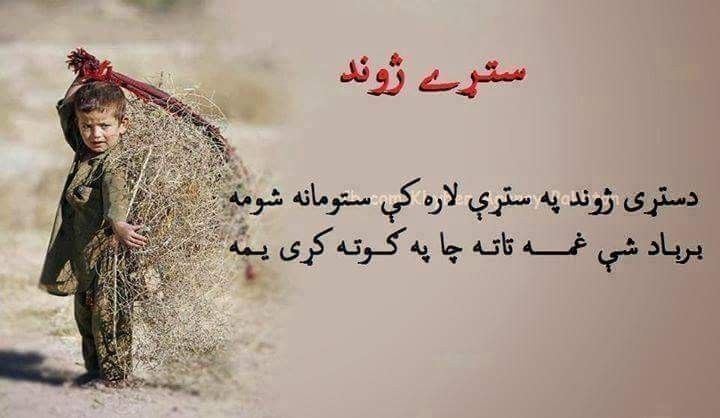Pashto poetry, with its rich cultural heritage, speaks directly to the heart, captivating audiences with its emotional depth, simplicity, and timeless beauty. One of the most striking forms of Pashto poetry is its ability to convey profound emotions and complex thoughts in just two lines. This unique format has allowed poets to leave an indelible mark on literature, with their verses echoing through generations. The brevity of two-line Pashto poetry captures the essence of love, loss, beauty, and struggle, making it both powerful and accessible.
The Art of Two-Line Pashto Poetry
Two-line poetry in Pashto, often referred to as “Sher” (شعر), is a testament to the poetic genius of Pashto poets. This format allows for a concentrated expression of intense emotions, often weaving together vivid imagery and thought-provoking themes. The beauty of Pashto poetry in two lines lies in its simplicity, yet the depth it conveys is far from simplistic. These short poems are often filled with passion, introspection, and a reflection of life’s complexities.
The art form’s brevity makes it a powerful tool for oral storytelling, with these verses often passed down through generations. They encapsulate centuries of cultural experiences, from the joys of love to the sorrows of separation, all conveyed in a compact yet impactful manner. The two-line structure serves to intensify the emotional impact, making each word and phrase resonate deeply within the listener’s soul.
A Legacy of Passion
Pashto poetry in two lines is more than just a form of artistic expression; it is a legacy of passion. This passionate legacy can be traced back to the earliest poets who crafted verses that continue to resonate today. One of the most revered figures in Pashto literature, Khushal Khan Khattak, is known for his mastery of short but potent verses that capture both personal and universal emotions. His contributions to Pashto poetry have set the foundation for the generations of poets who followed, each adding their unique voice to the tradition.
Pashto poetry in two lines is often centered around themes of love, longing, and personal loss. These themes speak to the human experience in a way that transcends time and place. Whether it is the passionate cry of a lover separated from their beloved or the reflection on the fleeting nature of life, the simplicity of two-line poetry allows for universal emotions to be expressed in a deeply personal and intimate manner.
The legacy of Pashto poetry in two lines extends beyond just love and loss. It is also a celebration of resilience, bravery, and pride. In times of war and struggle, these short but powerful poems have been used to rally spirits, inspire resistance, and offer solace in the face of adversity. Pashto poets have often used their verses to speak out against oppression and to honor their people’s strength and determination.
The Power of Simplicity
One of the defining features of Pashto poetry in two lines is its simplicity. Unlike longer poetic forms that may elaborate on themes at length, the two-line format requires poets to condense their thoughts into a concise, yet potent, expression. This simplicity does not diminish the complexity of the emotions expressed. Instead, it amplifies them. Every word becomes essential, and the meaning behind each line is often layered with depth and nuance.
The skill of crafting such short poetry requires not only an understanding of language but also an understanding of the human heart. Pashto poets masterfully capture fleeting moments, allowing their words to resonate long after the verse has been spoken. The brevity of the form enhances the emotional weight of each line, and this ability to evoke such strong feelings with minimal words is a hallmark of the poetic tradition.
The Impact of Pashto Two-Line Poetry Today
Pashto poetry in two lines continues to thrive in modern times. While the themes and subjects may have evolved to reflect contemporary issues, the core emotional resonance remains unchanged. Today, these short but impactful poems are not only recited in homes and gatherings but are also shared widely on social media platforms, where they continue to inspire and move audiences worldwide.
The power of Pashto poetry in two lines lies in its ability to convey emotions that are as relevant today as they were centuries ago. Whether it is a reflection on love, loss, or the struggle for identity, the poetry speaks to the human condition in a universal language. Its simplicity, combined with the depth of emotion, makes it a timeless and powerful form of expression.
Conclusion
Pashto poetry in two lines is more than just a poetic form—it is a legacy of passion that transcends time, culture, and borders. Through its emotional depth and simplicity, this form of poetry captures the essence of life’s most profound experiences. From the powerful verses of Khushal Khan Khattak to the modern-day poets who continue to share their verses with the world, Pashto two-line poetry remains a cornerstone of cultural expression and a testament to the enduring legacy of passion in Pashto literature.
The legacy of Pashto poetry in two lines is a reminder of the power of words. With just a few words, poets can evoke emotions, inspire change, and connect people across generations. Pashto poetry will continue to be a source of passion, insight, and beauty, cherished for its ability to express the deepest feelings of the human soul in a format that is as timeless as it is meaningful.
